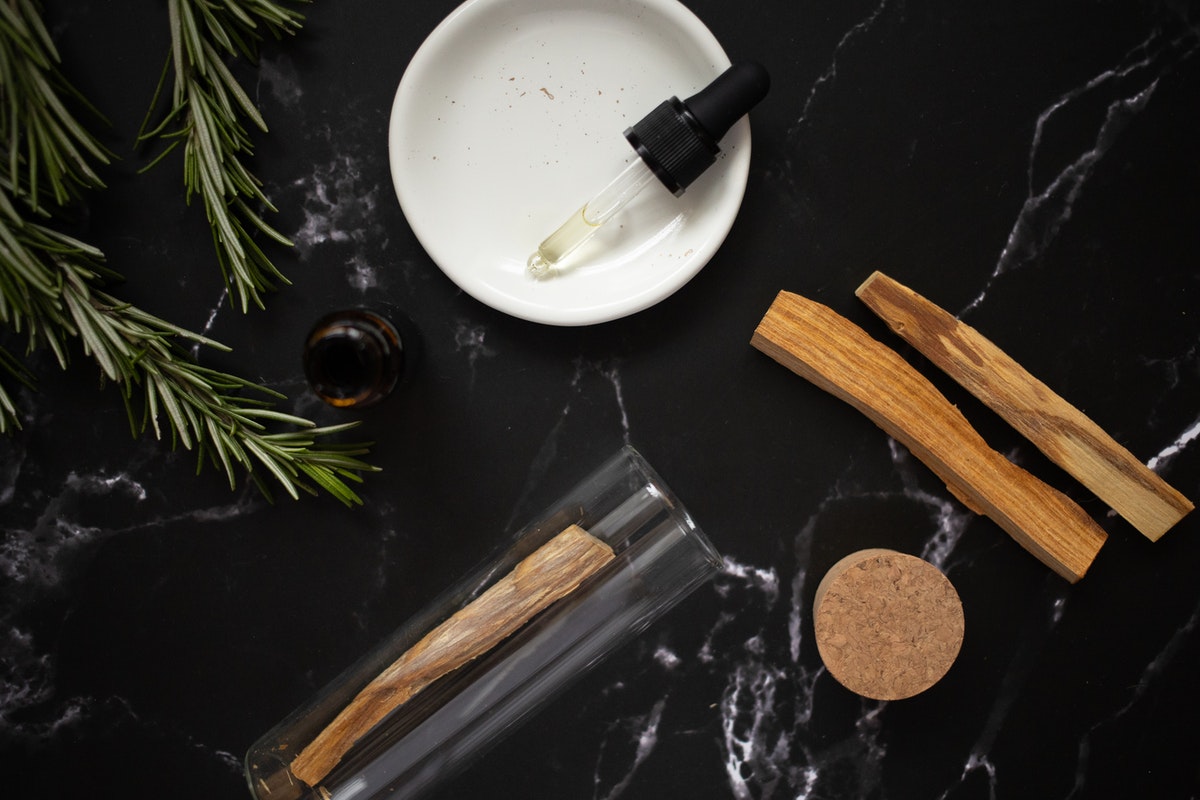
The essential oil contains a distinctive aroma from the plant it is extracted from, and many are used to add natural scents to products. Essential oils from an enormous range of fragrant plants have been documented as a significant fragrance ingredient in perfumes and cosmetics, offering a broad range of natural scents with distinctive notes. Essential oils are used in nature-based cosmetics first for their anti-inflammatory, antibacterial, and antiviral properties. All-natural cosmetic oils, which do not use any chemical modifications during manufacture, are composed of a mixture of formulated oils, waxes, unresolved substances, and essential oils.
This characteristic makes an essential oil important for many flavouring additives in cosmetics, perfumes, massage oils, and medical agents. Essential oils can penetrate the skin and improve topical delivery of active agents from topical preparations via various mechanisms, including breaking down intercellular lipid structures within the stratum corneum, interacting with intercellular proteins, and increasing the distribution of the active agent across cellular membrane barriers. Natural-based cosmetic oils and waxes are essential ingredients used in personal care preparations for structuring preparations and providing a soft, moisturizing sensation on skin or hair. Of course, essential oils are the staples in natural skin care, where they are used for their beautiful fragrances but also as ingredients that are good for the skin. I encourage anyone to properly research brands and products claiming to utilize essential oils because when they are pure, fresh, undisturbed, and formulated by professionals, they can be incredibly effective at combating so many skin issues and slowing down ageing and decrementing of your skin.
They must be used in a specific concentration, pure, organic, and unadulterated, and not be past their shelf life. Interestingly, essential oils are also used in cosmetic products to trigger further benefits for the skin, such as acne control, anti-aging, skin lightening, and sun protection, among others, making them very valuable for cosmetic industries. From the skin-softening properties of luxuriant roses (used by Cleopatra to keep her beautiful) to the wound-cleansing benefits of myrrh used by ancient Roman soldiers going to war, essential oils capitalize on a broad array of plant-based therapies to meet virtually any skincare requirement. As with oils recommended for dry skin, these oils can be applied directly to areas of acne or pimples or mixed with a base oil such as almond or jojoba.
Mixing makes it easier for oils to blend into your skin’s natural oils and get into your cells, where they can be absorbed, cleaned, and done. Natural skin oils can be applied neatly (directly onto the skin), but do not be afraid to dilute them if they are too thick or feel too strong by using some extra virgin olive oil or another base oil. Other citrus oils, including sweet orange, mandarin, and grapefruit, work best for oily skin. However, some citrus oils that are safe for eating may be detrimental to your makeup, mainly if you apply them to sun-exposed skin.
 Properly, professionally formulated — Use only 0.25 per cent on sensitive skin and up to 1.5% on oily skin, and avoid oils prone to irritating skin. Many oils are considered safe for use on the skin in pregnancy, but I would advise checking with your health care provider first. While essential oils are usually regarded as safe, since they are complex blends of compounds, some known allergens and sensitizing agents for the skin, they should be indicated on the beauty labels, particularly if the consumer has sensitive, allergy-prone or existing skin conditions, and can choose to do patch tests before using products that are complex blends of compounds. Consumer sensitivity to reported allergic contact dermatitis from synthetics and the development of resistant bacteria in synthetically-preserved antibacterial agents is further driving this trend toward natural preservatives. Notably, synthetic preservatives at recommended dosage levels did not appear to result in skin irritation in a review of 45,000 human subjects.
Properly, professionally formulated — Use only 0.25 per cent on sensitive skin and up to 1.5% on oily skin, and avoid oils prone to irritating skin. Many oils are considered safe for use on the skin in pregnancy, but I would advise checking with your health care provider first. While essential oils are usually regarded as safe, since they are complex blends of compounds, some known allergens and sensitizing agents for the skin, they should be indicated on the beauty labels, particularly if the consumer has sensitive, allergy-prone or existing skin conditions, and can choose to do patch tests before using products that are complex blends of compounds. Consumer sensitivity to reported allergic contact dermatitis from synthetics and the development of resistant bacteria in synthetically-preserved antibacterial agents is further driving this trend toward natural preservatives. Notably, synthetic preservatives at recommended dosage levels did not appear to result in skin irritation in a review of 45,000 human subjects.
Light, blotter, and easy to absorb on the skin, MCT oils are particularly helpful in skincare products. Because it does not leave behind oily residue, MCT oil is perfect for products that are sold as being oil-free or targeted to sensitive skin types. When used in hair care products, materials such as Jamaican black castor oil remove both impurities and clarifies the scalp, leading to better performing, eco-friendly skincare products. In a paper published in Cosmetics journal, a Singapore-based research team, Li et al., used peppermint, lavender, and eucalyptus oils to make nanoemulsions with naringin and tested whether this process can enhance the effectiveness of the essential oils in skincare products.
Linalool is found naturally in lavender and helichrysum and is highly stable. Limonene, Geraniol, found naturally in geranium and grapefruit, and less stable, Farnesol, Benzyl Benzoate. When listed on labels as natural ingredients within essential oils, those are the EU-required notations to indicate the state of the allergen in the essential oil, rather than isolated added to a formula. This is where the term essential comes from: an oil contains the essence of a plant’s scent.
